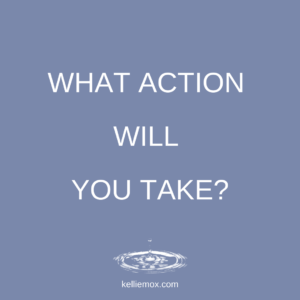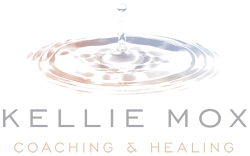I first learned about coaching eighteen years ago. I’d recently graduated from the University of Michigan School of Public Health, and I felt uncertain about how I wanted to apply my new skills and knowledge out in the world. While I can’t remember how I learned about this burgeoning profession, I remember immediately knowing I wanted to work with people in this way. I immersed myself in coach training and started coaching for a health promotion company shortly after that. Two years later, I started my coaching business. I witnessed countless people accelerate their self-discovery and sense of fulfillment, deepen their learning, and create meaningful results in their lives through coaching conversations.
Coaching became more than a profession. Its philosophies aligned with my own and its practices–like active listening, powerful questioning, and creating awareness–were practices I felt passionate about in my daily life. Indeed, one of my takeaways from training was the power of the coaching approach in our everyday interactions. I’ve learned it takes a lot of practice and self-management though. While it feels natural and easy with my clients, a coaching conversation with my husband or children requires even more presence and self-awareness. I have a lot of room for growth here! The challenge is worth undertaking, as this way of being with our family, friends, or coworkers offers the possibility of deeper, more meaningful connections. A coaching approach ultimately allows us to show up for each other and for ourselves. The good news is that you can play with this even if you’re not a fully trained coach. Read on for a few coaching basics that you can experiment with in your own life.
Capable, Creative, and Whole
One of the primary foundations in coaching is that the client is her own best expert. In addition, the client is inherently resourceful and complete–she need not be fixed, because she’s not broken. That means coaches don’t give advice or information unless requested or permitted. Rather, coaches listen deeply, validate and reflect what they hear, and they ask powerful questions that welcome curiosity, self-exploration, and learning. In this way, the coach supports the client in finding her own answers.
How often have you offered your opinion or advice during a conversation without asking if it’s wanted? And, how often does it happen to you? How does it feel?
When we step in to offer ideas or instructions, it’s often because we feel a need to fix, a desire to be useful, or even a discomfort with someone’s difficult emotions. The more we hold others in a light of inherent creativity and wholeness (and let go of our ego), the less we feel compelled to step in and fix. Instead, we’re more able to connect and support. What might happen if you ask your partner whether she needs your input or just a listening ear? How might your conversations change if you pause before offering your ideas and ask how you can show up and support?

Active Listening
Active listening is another core element of every coaching conversation. When I’m coaching, I’m present in the moment, and I’m listening to more than the client’s words. I’m also listening for what’s beneath the words. I’m listening for tone, themes, energy, stagnation, resistance, meaning, and more. And I’m listening with all of my senses, too. Furthermore, I often reflect what I’m hearing to a client to acknowledge and validate her sentiments.
How often during a conversation are you thinking of what you’ll say while the other person is still talking? Your internal chatter is focused on what her words mean to you, which means you’re not really receiving all that she’s conveying. This is the kind of listening that most of us do every day.
Active listening is a skill to hone, and even if you’ve practiced active listening before, it often requires effort, self-awareness, and self-management. What would it look like to quiet your internal dialogue in your next conversation and focus on listening to more than your partner’s words? How might your conversations and relationships shift if you practice reflecting her words instead of sharing your reactions to them?
The Powerful Question
Powerful questions are another fundamental component of the coaching approach. Powerful questions catalyze curiosity, new thinking, and aligned action, and ultimately, they deepen the learning and forward the movement for the client. These kinds of questions rarely ask for information, rather they are offerings of expansion and inquiry that grow from the two foundations above. If I view the client as her own best expert, my questions need to connect the client to that inherent expertise.
How often do you ask a question in a conversation to find out what a person did or didn’t do so you can offer them another option? How often do you ask questions to confirm the thoughts you already have about someone else’s process? Often our questions are of this nature, because we’re human beings with human egos that strive to protect our carefully constructed views of the world.
If you’ve experienced powerful questioning, you know the benefits are real. This, too, is a skill to sharpen, and it begins with active listening and viewing our conversation partners as capable, creative, and whole. What would it look like to experiment with powerful questions? What if you try active listening? What if you don’t? What might happen if you regard another as capable, creative, and whole? These are not only questions to consider but also examples of powerful questions. When your questions spark new thinking and curiosity, you’ll know you’re on the right track.

One Last Thing
If you’re thinking you’d like others to take this approach with you, know that you can be the catalyst. Change starts with one person and ripples out. Stay curious. Start a dialogue about these ideas with someone you want to connect more deeply with. Drop me a comment here so we can chat about it. Tell me, what action will you take?


